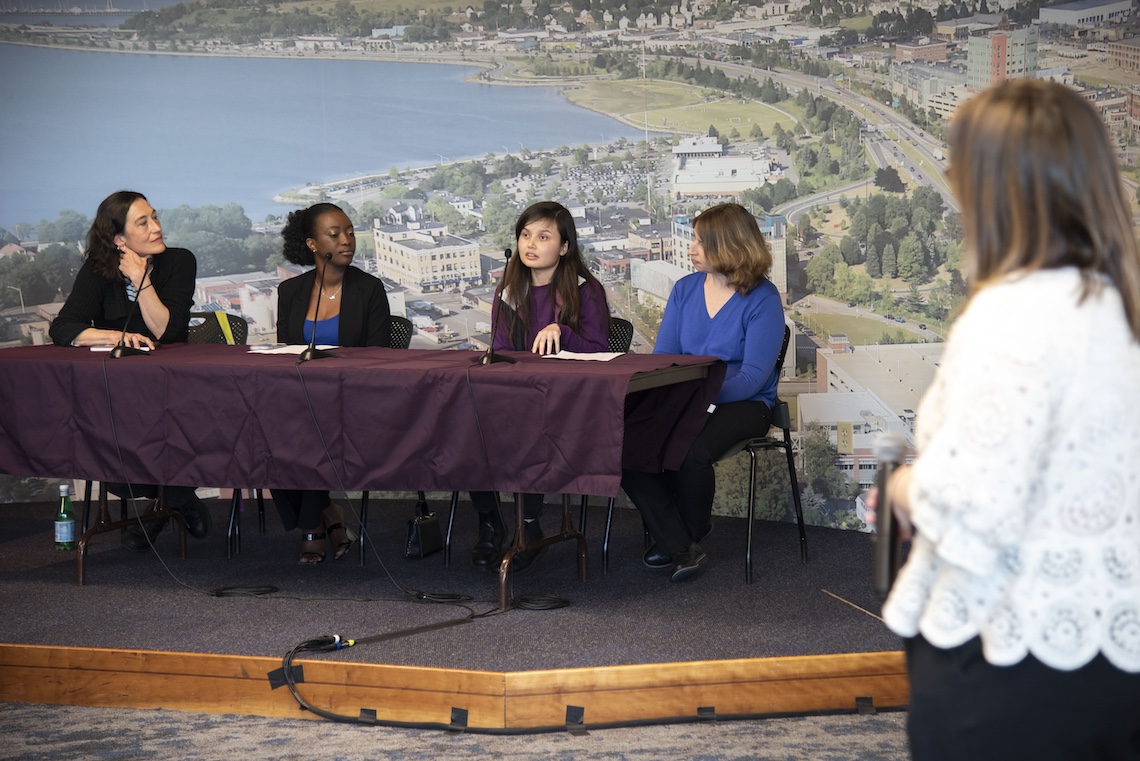
Marzia Saidi wanted more out of her education than women are allowed in her native country of Afghanistan. By coming to Maine, she found new opportunities but also new challenges.
“There were some people who were making fun of my English or my accent,” Saidi said. “Or sometimes they would recognize me as Chinese.”
Saidi studies Computer Science at the University of Southern Maine. Most of the people she’s met in the classroom and the community beyond have been friendly. Their support is important to her in dealing with the bullies.
Saidi shared the good and bad aspects of her adjustment to life in Maine as part of a panel discussion with fellow immigrants. They gathered at USM’s Glickman Library in Portland on April 16 under the heading of Living and Learning in Maine: Internationally Trained Professionals Bring Your Talents to Maine.
The forum was part of a larger project spearheaded by Jill Piekut Roy, a librarian in the University’s Special Collections division. She works extensively with historical records regarding Maine’s African American and LGBTQ+ populations. But when it comes to the immigrant community, Piekut Roy noticed a gap in the archives and felt compelled to fill it.
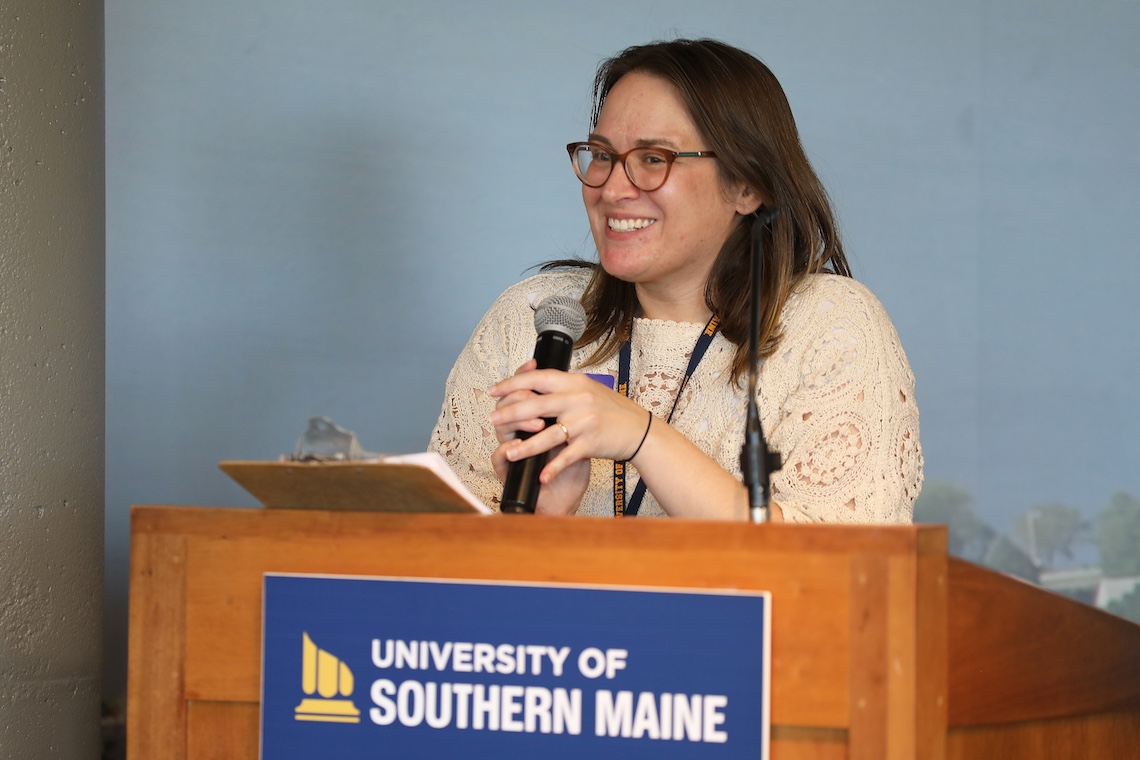
“The work of filling gaps in the documentary record is a long journey,” Piekut Roy said. “It has to be ongoing for a long, long time before you can consider a gap filled. I don’t know if we can ever consider the gaps filled because nobody can document everything that happened in history. But I think that it’s a start.”
Piekut Roy secured $10,000 for the project through the California Rare Book Collection at the University of California, Los Angeles. Beneficiaries are required to promote libraries as centers of community engagement and document their efforts with some sort of published material.
Piekut Roy initially planned to spend several months working with the same 25 immigrants and give them the resources they needed to set down their own stories in print. Managing so many schedules proved to be a nonstarter. With help from the Maine Immigrant Rights Coalition and the Kate Cheney Chappell Center for Book Arts, Piekut Roy tried again.
The plan they adopted involved a series of public workshops with a mix of informational and artistic elements. All were welcome to attend, expanding participation well beyond the original 25-person target. The event on April 16 was the second workshop.
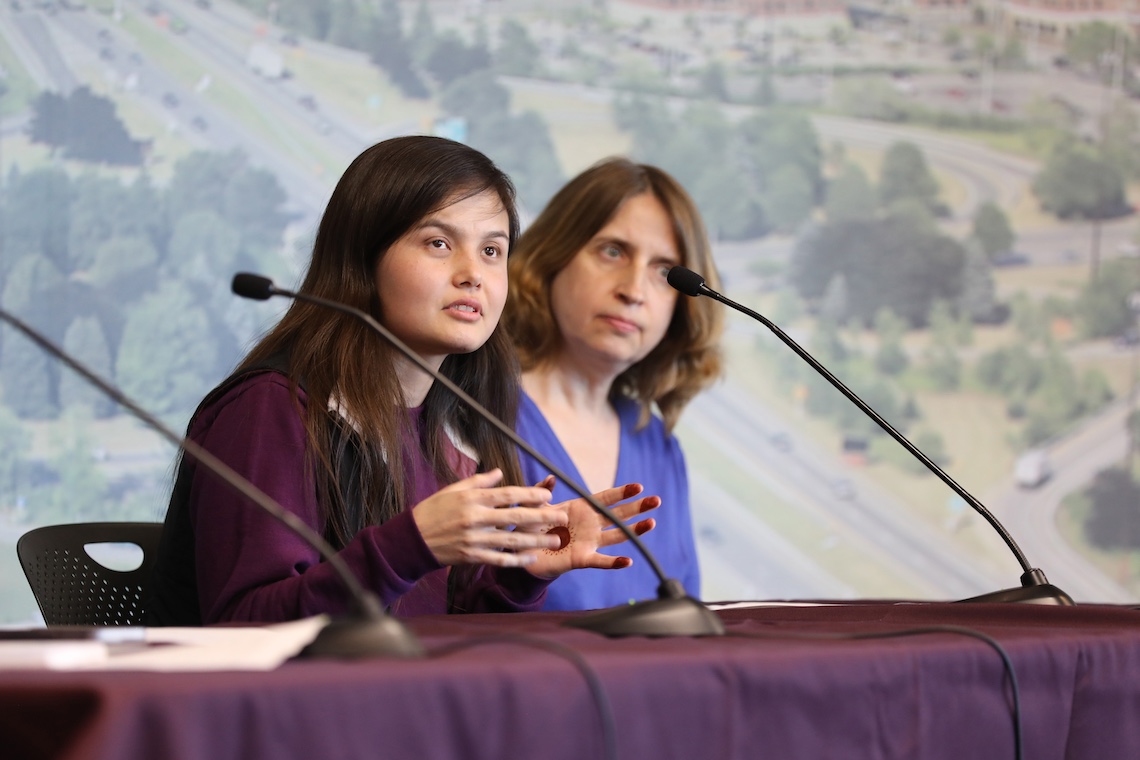
“What surprised me is how much excitement they have to be together and be working on those things in the library at USM,” Piekut Roy said. “What I learned is that if we make the space available and we put the materials out there and we put food on the table and we say, ‘Please, come in,’ people come in. And that’s really encouraging.”
Sitting on the panel next to Saidi were Joelle Mikobi and Anna Garanenko. Mikobi immigrated from the Democratic Republic of Congo. She is studying toward a Business degree. Garanenko graduated with a bachelor’s degree in Psychology last spring, and she is now on the master’s track. Her native country is Russia.
The language gap was a common theme in the panelists’ stories. Online games helped Saidi learn English, while Mikobi preferred movies. Garanenko expanded her vocabulary by watching episodes of the TV series “The West Wing” and reading British detective novels. In other ways, their experiences were quite different.
Garanenko found a supportive work environment with her student job at Glickman Library. She also made an important connection with Marina Chakmakchi, USM’s Global Talent Navigator. Chakmakchi’s job is to help immigrants at the University find new applications for the skills they learned in their native countries. She helped organize the panel discussion to further that goal.
The amount of support Garanenko received at USM made for happy memories. Being back in familiar surroundings for the panel discussion felt to her like a homecoming. She is now a year into graduate studies at the University of Maine at Farmington with plans to become a therapist.
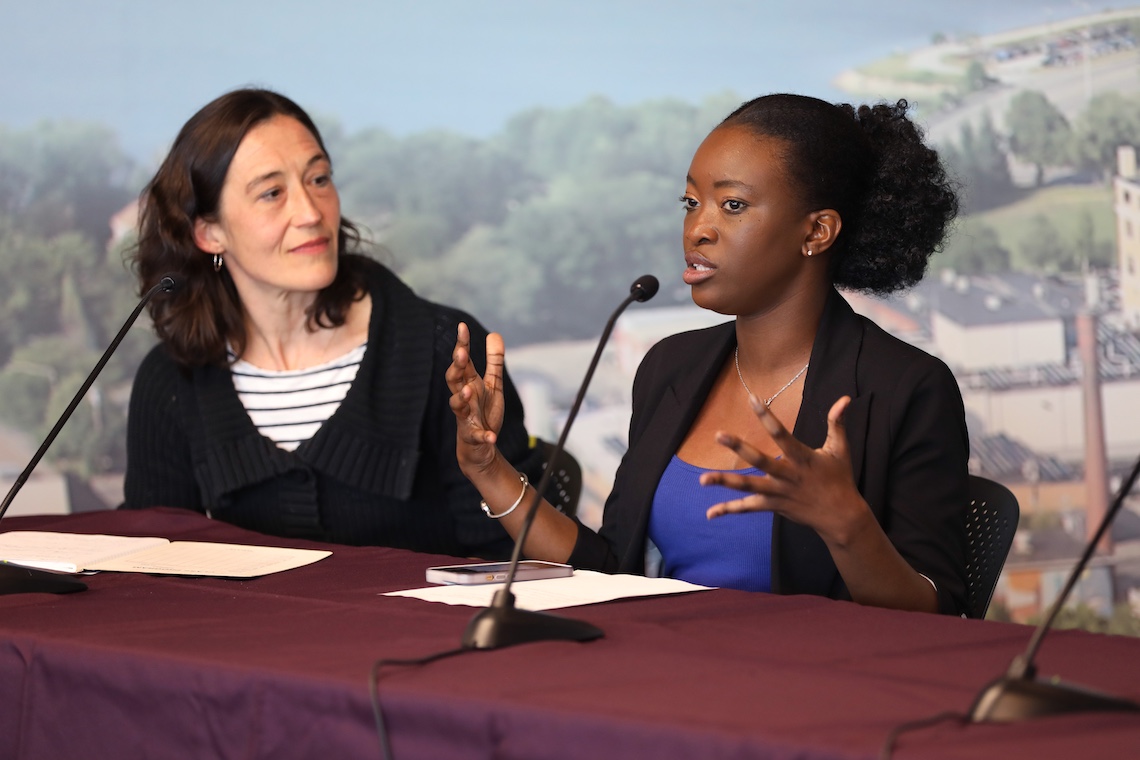
“It was very surprising in a good sense that people were so friendly, always compassionate,” Garanenko said. “Even with all the political turmoil, I never encountered any hostility on a personal level.”
Mikobi had a tougher transition to the American workplace. She has a customer service job but hopes to someday work in human resources. The racial attitudes of some customers and even co-workers were surprising to her after growing up in a Black-majority country. Subtler cultural differences also cropped up.
Mikobi was raised to treat older people with respect in the way she spoke to them. She was surprised when a supervisor chastised her for addressing a co-worker with the formal title of “mister” instead of using his first name, as she did with colleagues her own age.
“Your past is what makes you the person that you are today, and you strive to either improve or do better in the future,” Mikobi said. “There are things that forged my character and made me stronger, but there are also things that broke me that I am still recovering from even today. But I would say, I try to count my blessings.”
Once the panel discussion ended, Mikobi and Garanenko left to attend to other commitments. Saidi stayed for the artistic portion of the program. Guests used photographs, markers, and more to express themselves through collage. Their instructor was Sofia Aldinio, an Argentine-American documentary photographer.
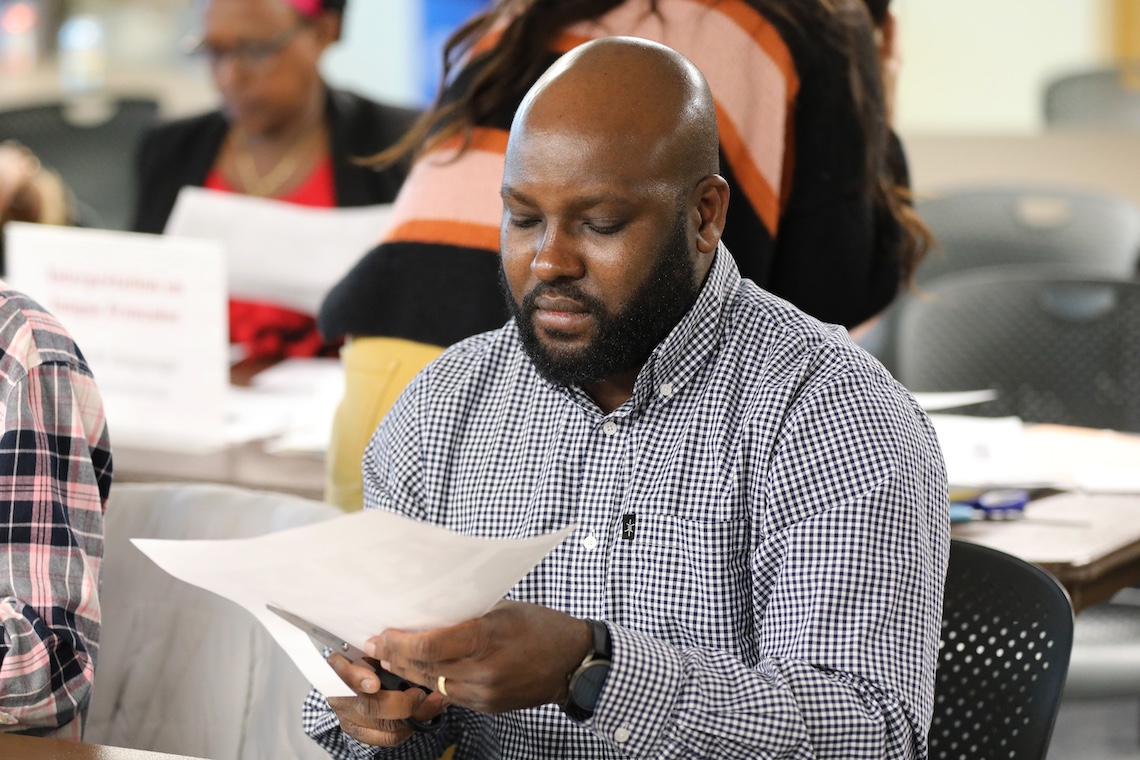
Some of the guests came in groups and worked on their collages together. Saidi had a table to herself. After so much self-reflection through conversation and art, she had a simple recommendation to help other people going through the same challenges as herself.
“Be kind,” Saidi said.
The next workshop in the series took place a week later. Two or three additional workshops are in the planning stages for the upcoming fall semester. Piekut Roy will spend the summer months developing the themes and activities for each event.
The culminating publication of the project is another work-in-progress. Collaboration is essential to the process. Piekut Roy will continue to draw inspiration from the people she meets at each workshop as she considers the final contents and format. Above all, Piekut Roy wants it to be a source of pride for Maine’s immigrant community.
“The reason I wanted to work with the immigrant communities locally is because I feel that they have much to say,” Piekut Roy said, “enough to fill many, many, many books.”

